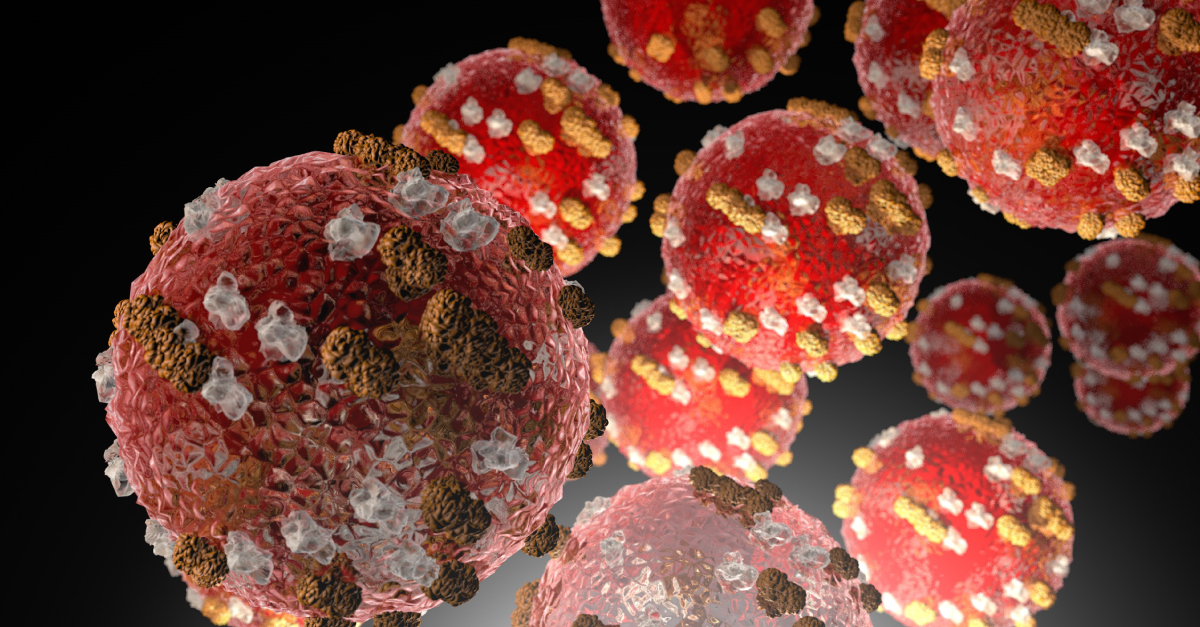
June 26, 2025
Measles is more than a rash and a fever that will clear up in a few days. Measles can cause serious health complications, especially in children younger than 5 years old, those who are immunocompromised and pregnant people.
Guided by our St. Peter’s Health Infection Prevention team, we are sharing essential information and guidelines about Measles to ensure the safety and well-being of our patients, staff and visitors. Our partners at Lewis and Clark Public Health and the Montana Department of Health and Human Services (DPHHS) are also closely monitoring the situation in Montana and nationwide, and providing regular updates and education to the public on local prevalence.
About the virus:
Measles, also called Rubeola, is very contagious. If one person has it, as many as nine out of 10 people nearby will become infected if they are not protected. It spreads through the air when an infected person coughs or sneezes meaning one can get measles just by being in a room where a person with measles has been. This can happen even up to 2 hours after that person has left the room.
Symptoms and complications:
Measles symptoms appear 7 to 14 days after contact with the virus. Common measles symptoms include:
- High fever (may spike to more than 104° F)
- Cough
- Runny nose (coryza)
- Red, watery eyes (conjunctivitis)
- Rash
Measles can cause serious health complications, especially in children younger than 5 years of age including ear infections, diarrhea, pneumonia, encephalitis (swelling in the brain), and even death.
How to protect yourself and others:
The best way to protect against measles is with the very safe and effective measles, mumps, and rubella (MMR) vaccine. Two doses of MMR vaccine are 97% effective at preventing measles; one dose is 93% effective. Children normally get the MMR vaccine at one year and four years of age. If people haven’t been vaccinated against measles as a child, they can get the MMR vaccine as an adult. Getting the MMR vaccine is safer than getting sick with measles, and it protects your family and your community. You can learn more about vaccination, including frequently asked questions, HERE.
How can I get the MMR vaccine?
- If you are an established patient with a St. Peter’s Primary Care Provider, you can schedule a nurse visit with your provider’s office.
- If you are not an established patient with a Primary Care Provider at St. Peter’s, please call to schedule an appointment with a provider.
- It’s important to note that many pharmacies, clinics and pediatrician offices in town offer walk-in appointments for vaccines such as COVID, flu, Shingles, MMR, etc.
I think I have been exposed to measles. What do I do?
Call Lewis & Clark Public Health at 406-457-8900 to discuss your risk and testing options.
If you plan to seek care at a provider's office, please contact them ahead of your visit so that special arrangements can be made to prevent exposure to other patients and medical office staff.
I have symptoms of measles and want to seek care. What do I do?
Call Lewis & Clark Public Health at 406-457-8900 to discuss your risk, symptoms and testing options.
After speaking with Public Health, if you plan to seek care, please call your healthcare providers office before arriving and inform them that you were exposed to someone with measles or that you have symptoms of measles so that special arrangements can be made to prevent exposure to other patients and medical office staff. You should not go to work or school if you are sick.
I have more questions about Measles. Where can I get more information?
The Centers for Disease Control (CDC) has an extensive webpage full of resources regarding Measles, including vaccine information and national outbreak information.
Our local Lewis and Clark County Public Health Department also has an extensive webpage and “frequently asked questions” section that we encourage community members to review. They are also providing weekly updates on Measles case numbers and trends in both Montana and the United States HERE. You can also call their Measles hotline at 406-457-8900.
Contact your primary care provider’s office and/or pediatrician’s office.
